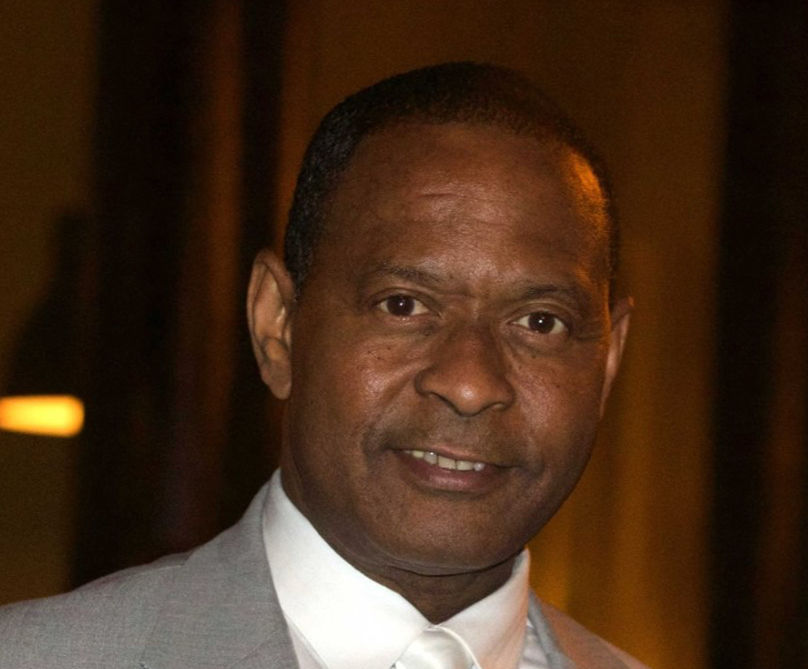The Loud Voices of Blacks in Alabama and the Silence of Their Elected and Appointed Officials
- Donald V. Watkins

- Aug 9, 2023
- 3 min read
By: Donald V. Watkins
Copyrighted and Published on August 9, 2023

An Editorial Opinion
"Our lives begin to end the day we become silent about things that matter." - -Dr. Martin Luther King, Jr.
Have you noticed the loud silence coming from Alabama’s community of black elected and appointed public officials on the following topics of significant public interest?
1. The recent Riverfront brawl in Montgomery. Videos of the brawl have gone viral on the Internet and in the national news media. The brawl started when a group of unruly whites viciously attacked Damien Pickett, a 56-year-old black riverboat co-captain while he was performing his job last Saturday. Yet, the state's black political leadership has been completely silent on the brawl and its ramifications in press releases and on social media platforms. The brawl clearly signals that blacks in Montgomery and across the "Old South" who are wrongfully and viciously attacked by a menacing group of whites will no longer "turn the other cheek." They will fight back in unity. Montgomery is now the birthplace of the bus boycott (December 1955 to December 1956) and the 2023 Riverfront brawl -- two defining moments in the movement for human dignity and respect for civil rights.
2. The all-white, five-member Alabama Court of Civil Appeals, which has never had a black member.
3. The all-white, five-member Alabama Court of Criminal Appeal, which has never had a black member.
4. The all-white, nine-member Alabama Supreme Court in a state that is 26% black. This court has not had a black member since 2001.
5. The Confederate-flag waving conduct of Alabama Supreme Court Chief Justice Tom Parker, who cherishes his Confederate heritage.
6. The defiant refusal of the Republican-dominated Alabama Legislature to comply with a federal court mandate to submit a redistricting plan that contains two majority black districts.
7. The dismantlement of affirmative action programs at historically white public colleges and universities and diversity, equity, and inclusion programs at major corporations.
8. The aggressive dismantlement of black economic empowerment agendas and opportunities in Alabama.
9. The non-stop poisoning of the air, ground, and water in three black neighborhoods in North Birmingham by six major industrial polluters, which requires an estimated $1 billion to clean up.
10. The skyrocketing murder rates in Mobile, Montgomery, and Birmingham, along with the state's overcrowded and filthy prison conditions.
What Matters are Black Elected and Appointed Officials in Alabama Allowed to Speak Out About?
Here are the safe topics for black elected and appointed officials in Alabama:
1. Securing funding for predominantly white and elitist Birmingham Southern College, in the form of a $30 million loan from the state of Alabama and $5 million from the city of Birmingham.
2. Building a new downtown football stadium for the University of Alabama at Birmingham, which will receive $90 million in funding from cash-strapped Birmingham taxpayers in the amount of $3 million over a 30-year period.
3. Building a new amphitheater in downtown Birmingham, which cost cash-strapped Birmingham residents $5 million.
4. Engaging in symbolic legislative opposition against moving the Rocket Monument out of Huntsville.
5. Praising the courage of dead civil rights leaders from the 1950s and 60s during commemorative events.
Who Funds the Political Campaigns of Black Elected Officials in Alabama?
Approximately 96% of the campaign money raised by black elected officials in Alabama comes from Republican-leaning PACs, major Republican-oriented businesses, “dark money” entities, out-of-state corporate interests, and Republican mega donors. For all practical purposes, the state's Democratic Party is dead. It cannot fund any political campaign. Furthermore, one-third of the state's black population lives in poverty and cannot contribute money to anyone's political campaign.
Who Do Black Elected and Appointed Officials in Alabama Truly Represent?
Black elected and appointed officials in Alabama typically represent the political interests of Republican-leaning businesses, GOP mega-donors, out-of-state corporate interests, and traditional power-players in the state. When they do talk out about something involving their black constituents, it is usually just a "feel good" speech at an awards ceremony or annual civil rights commemorative event.
Are Black Elected and Appointed Public Officials in Alabama Basically Useless?
For the most part, “Yes.” With the exceptions of 2 or 3 officeholders in the entire state, black elected and appointed public officials in Alabama will only do what their Republican and corporate handlers allow them to do. These officials are often treated like "bastard children" by their GOP handlers. They are afraid to speak out about the things that matter.
Parting Thoughts
Of course, no white elected official in the state has condemned the violent attack on Damien Pickett.
Republican Alabama Attorney General Steve Marshall, who wages aggressive fights to protect unborn children, has not said a word about the violence that threatened Damien Pickett's life.
Steve Marshall is always missing in action when it comes to the protection of the health, safety, welfare, lives, and civil rights of blacks in Alabama.
Today, blacks in Alabama are basically unrepresented in the state's political dialogue, political processes, and political apparatuses. They must speak for themselves, via their words and actions.
This is the cold, hard, truth!








The Montgomery of today is far different than the Montgomery in the era of Reverand Vernon John, Rosa Parks, E.D. Nixon, Reverend Martin L. King Jr., Sidney Williams, Alvin Holmes, Donald V. Watkins, Norman Lumpkins, and Joe Reed etc. Yet, most of these warriors fought against injustice long before the 1964 Civil Rights Bill, and the 1965 Voting Rights Bill were signed into law.
Unfortunately, American Africans in Montgomery Alabama serving in public offices or some other capacities of leadership don't see the plight of fellow American Africans as legitimate. Rather than engage some of the concerns that having an adverse effect in neighborhoods where the majority of American Africans reside, you typically hear: "They need to get off their…